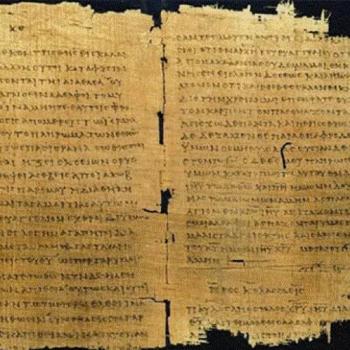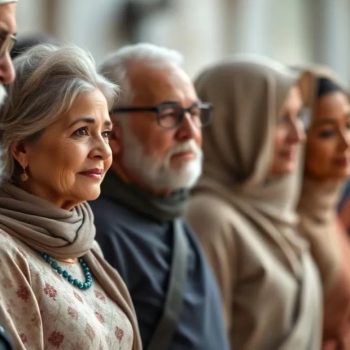I'm not trying to be patronizing. I think atheism, humanism, and agnosticism are vital elements in the world's religious landscape. For all things to be in balance, non-religious thought, belief, and practice must exist in the world. It's an essential element to religious pluralism. Besides, as many Pagan traditions are orthopraxic, atheism is no barrier to participating in most forms of Pagan spirituality, and is not of necessity in opposition to Pagan spirituality. Some atheists participate in Pagan groups because they enjoy the acceptance, joy, drama, and therapeutic nature of Pagan ritual.
If we are differently equipped to interact with the Divine, this has several implications. If this is true, then we do not have true Free Will. While we may be able to learn to connect with and worship a Deity, we do not come automatically "wired" to connect with all Divinity. This would explain why some people are strongly drawn toward or strongly repulsed by certain Deities. The constellation of things that make them who they are predispose them to react to Divinity a certain way.
Some people may be intrinsically suited to connect with only a single Deity and their only experience of Divinity is in "One." Monotheists have been around for as long as humans have had religious impulses. While intellectually accepting Divinity as plural, there were ancient Pagans who found their religious expression only through a single Deity. What they believed and their experience did not correspond, yet they didn't contradict each other, if the concept of "all paths to Divinity are valid" is accepted. A good example is the early Hebrews who, although recognizing there were other Gods, found a connection and a religious expression only through one God. Today there are many Pagans who worship only the Goddess, a single female Deity encompassing all of nature.
For those who connect with multiple Deities, the idea of predisposition helps explain why people "choose" the very specific paths they end up following. Most people who convert to Pagan religions go on an odyssey that can last several years before settling into a path of Paganism that speaks to them. This process of "trying on" Gods and religious practices is almost like solving a puzzle where you have to find which blocks fit in the odd-shaped holes in your religious life. If we were all identically equipped to interact with the Divine then such an odyssey would be unnecessary, as we would be able to connect with equal depth to any Deity.
The flip side of this as it relates to those who connect with multiple Deities is that it provides a reasonable explanation for the phenomenon of declining the call of a Deity. Some Pagans have felt the call of a God but felt no connection or calling to serve that God. If the Gods were omniscient they would not be reaching out to those who cannot connect to them, and this phenomenon suggests that the Gods may be searching for the humans who can connect to them in the same way we seek them. Mythology is full of examples of Gods claiming those who are not only desired by them, but who are capable of responding to their call, the most famous of these perhaps being Abraham and Hercules. Although, being claimed obviously doesn't mean your spiritual path is smooth sailing!
If we were differently equipped to interact with the Divine it would explain the "coming home" phenomenon. Upon finding a spiritual path that speaks to us it is common, especially in the Pagan community, to have a profoundly emotional reaction that is often described as "coming home." This experience can be intense and profound, yet it tends to only occur in certain circumstances. A person may spend years in a religious tradition without ever having this experience, or may have pursued various religious traditions without having this feeling of homecoming. Like a radio receiver, the person has found the frequency that matches their position on the dial of religious experience. If all Divinity is "One" then this experience should only happen to those coming from non-belief to belief. If we are all equally equipped to connect to all Divinity then we hit the same wall. This experience only makes sense if each of us is predisposed to connecting to Deity in specific personal ways and this feeling results from solving the puzzle at last.
A serious implication of this theory regards the possible harm of a limited religious education. If we are taught from birth that only one religious path (or lack of path) is an option, we may find ourselves struggling against the current for years to achieve connection with Divinity. Whether or not this "square peg + round hole" struggle is spiritually, emotionally, or intellectually damaging is beyond the scope of this article, but it's something any parent should seriously consider.
What I find the most fascinating about this theological concept is that we are constantly evolving our ability to connect with the Divine, that we are able to connect in ways today that we couldn't 2,000 years ago. One of the most fascinating things about mythology is that the Gods change over time. They give birth to new Gods, they make allies, they make enemies, and they make amends. The Divine as a static concept is relatively new to human religious thought. The concept of static Divinity could be said to be tied to "scriptures": dynamic, organic, oral traditions codified into written works that were then held to be sacred by later generations. It has been said that the modern proliferation of books on Paganism is causing a movement built on dynamic exploration and experimentation to stagnate.





